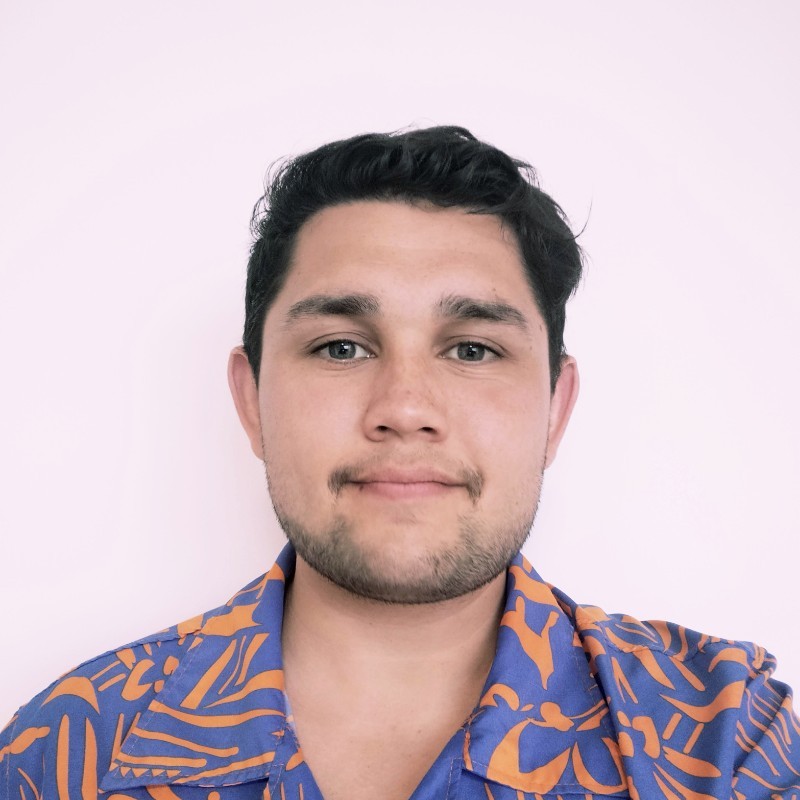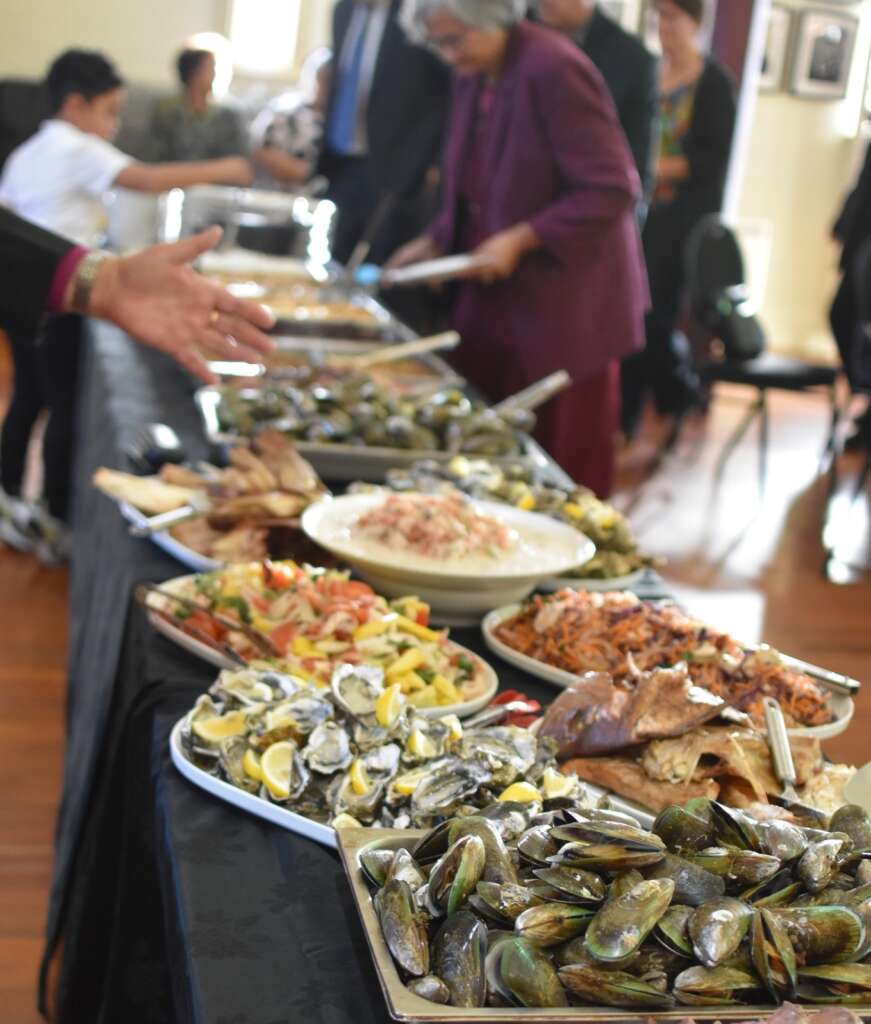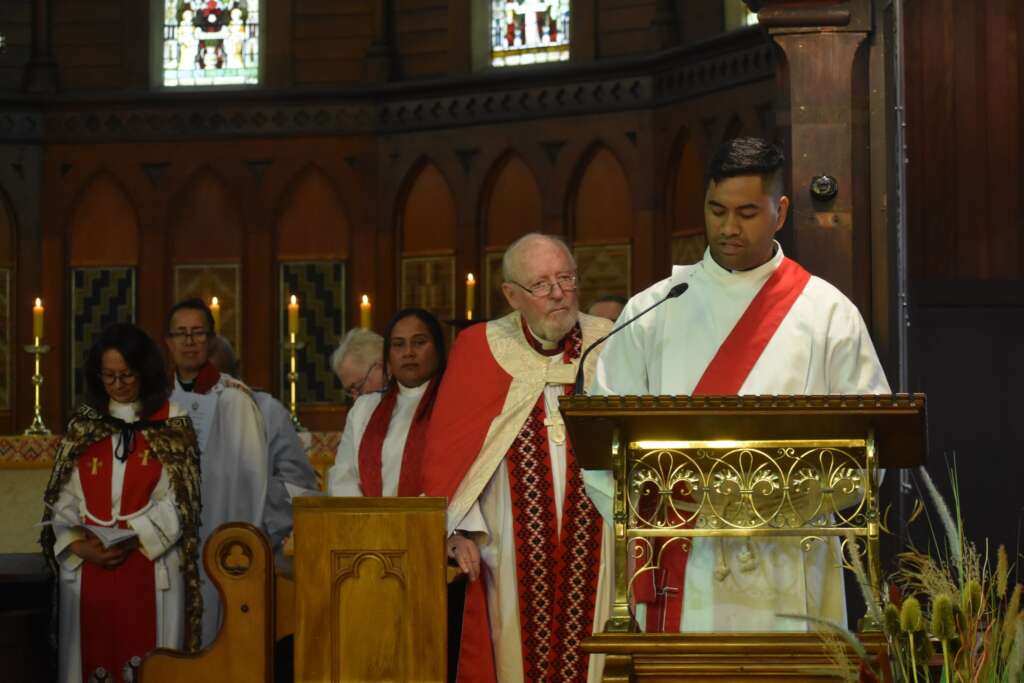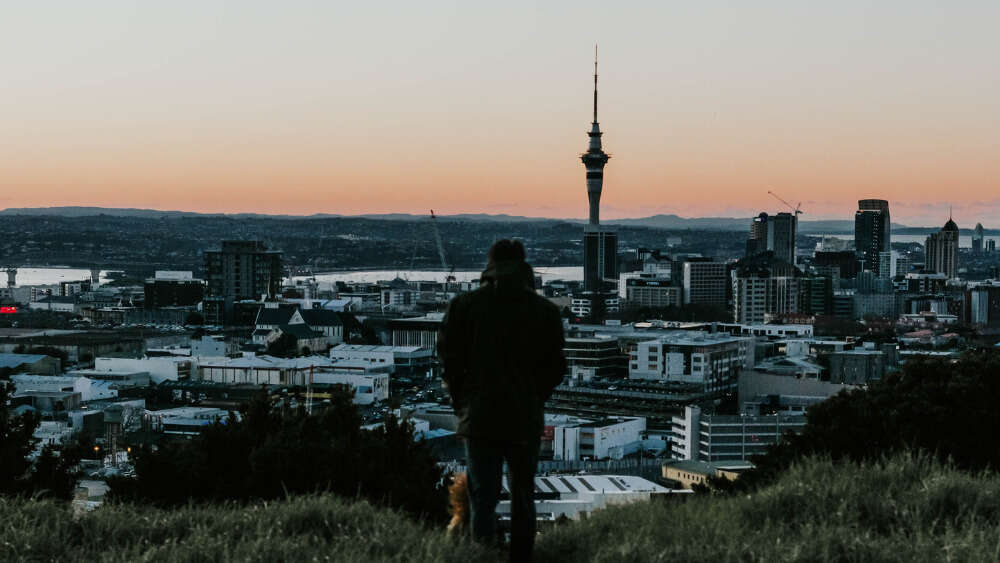Language as a balm and the work of Māori reclamation
A young Māori Anglican shares his journey.
Like many Māori people, Scott Parekowhai introduces himself by his connection to the land. “I was born and raised in Auckland, New Zealand, but I whakapapa (genealogy, connect) to the east coast of New Zealand, out Gisborne way. My tribal group is Te Aitanga-a-Māhaki.”

Scott Parekowhai
Scott is a 26-year-old Māori Anglican priest in training with a burden and a passion to help connect young Māori people with their cultural identity and a God who loves them. Through his personal journey of reclaiming his indigenous language, te reo Māori, he has learned about himself and his people. He has a richer appreciation for the faith through which he found faith community and purpose.
Scott first found Christian community through university student ministry: “I found a real home within the Anglican space, in the Pākehā (European) side of the church.” It was a great community, but something was missing for Scott. “There were five Māori within that large church of over a thousand people,” he says. With a yearning to support his people, in and outside of the church, Scott made the jump from his studies in Health to train as a priest and a chaplain.
Cultural reclamation and faith
For Scott, there is a natural alignment between his Māori culture and Christian values. “Being Māori brings to life my faith; it changes the way I engage with people,” says Scott.
Scott shares that there are key principles in Māori culture, which are seen in Christianity. “The idea of manaakitanga, hospitality, caring, giving in abundance, was handed down through my Māori lineage. It’s also a core tenet of the church,” he says.
The concept of whakapapa, which emphasises connection to the past, also resonates deeply with Scott’s understanding of the rich spiritual heritage in Christianity. “Whakapapa is the Māori word for genealogy, but it’s more the sense of the interconnectedness of everything and everyone. Naming back great-grandparents. Whose I am. Within Scripture, there is this interconnection between that Hebrew heritage and our story as Christians,” Scott explains.
“Whakapapa is the Māori word for genealogy, but it’s more the sense of the interconnectedness of everything and everyone.” – Scott Parekowhai
Embracing his Māori identity has strengthened his faith and deepened his sense of connection to his people and others. “Everything is interconnected. That ancient knowledge is passed down through the generations to us,” he reflects.
Being Māori and interconnection
This distinctly Māori understanding of interconnection and the value of story help Scott connect with others meaningfully.

Maori hospitality
“Being Māori changes the questions I ask, the thoughts I have about people, about their stories, about how I hold those things.”
In Māori contexts, people rarely get to know someone new by asking what they do. “It’s natural to ask someone as an opening question, where are you from? Where do you call home? Where are the waters you come from?” says Scott.
For Scott, these questions “tell me where I place you, the history of your people, how my people and your people have interacted in the past. It tells me more about you than knowing where you work.”
Māori can bypass inherent judgments based on present circumstances and know “where they’ve been, their full backstory before they were even born.” According to Scott, Māori people desire authentic relationships and manaakitanga (hospitality and caring) is connected to this.
The journey of Māori reclamation
Reclaiming his Māori identity means confronting the pain of the past. Scott acknowledges that “many Māori still can’t speak te reo Māori, given systemic government restrictions of the past. Only since the 1980s has there been a resurgence. My generation is the product of what our grandparents fought for,” he says.
Young people are now able to reclaim their language and their culture, but this can be a challenging and emotional process. “We are taking night classes and paying tuition fees to claim something that should naturally be ours..”
Scott believes healing can be found by reconnecting with one’s cultural roots. For Scott, Christ’s promise of redemption and restoration connects with the journey many young indigenous people are on, “figuring out who they are, whose they are, where they belong.”
Language as a balm
While Scott’s grandfather was a fluent speaker of te reo Māori, the Native Schools Act (1867) stamped it out during his school years. That generation grew up believing there was no point passing their language down, which resulted in Scott’s father and many of that generation never learning the language.
“At age 24, I was able to attend a full immersion school to reclaim this language,” says Scott.
This decision reverberated in his family almost immediately.
Just six months before our interview, Scott’s grandfather passed away. “As the only Māori speaker in our family, my grandfather would be the one to get up and welcome people. To settle people’s spirits, we call it whakatau. It’s to get rid of any anxieties, anything that people are carrying, to bring peace,” says Scott. With the passing of the family patriarch, this significant mantle fell on Scott’s shoulders. “It was heartbreaking, but I know how proud he would’ve been, how proud he is of what I did for him.”
This sudden passing down of cultural responsibility gave Scott pause for thought. “If I hadn’t made that journey, who would have stood up and done this for our family? There were huge challenges, but when the time came, I was ready and I’m proud.”
“It was heartbreaking, but I know how proud he would’ve been, how proud he is of what I did for him.” – Scott Parekowhai
He acknowledges that “in the reclamation journey there are scars, heartache, lots of tears. But now being able to minister to my own family, to be present to them and their spiritual and cultural needs, to be training, to offer that to other whanau (extended family) is a beautiful thing.”
Language as a window
Since indigenous language is “imbued with the learnings and wisdom of our elders, it unlocks a new revelation about how we see God, how we see Christ’s mission,” Scott says.
For example, the New Zealand Anglican prayer book was a game changer for Māori Christians because “some of the services were translated thought by thought, rather than word for word.” Many of the Māori translations within the prayer book, communicate profoundly Māori ways of thinking and being. Scott shares a portion from the Eucharist service:
“We shall all be one in Christ, one in our life together,” which is translated in te reo Māori to “Ko te Karaiti te pou herenga waka” (Christ is the pole to which we tie our canoes).
“Within traditional Māori society, there was a central pole where, after long voyages, the waka (canoe) would be tied. Christ is the unification, is our anchor, is the place where we find connection, support, and knowledge… like that central pole that holds many canoes,” explains Scott.
Ko te Karaiti te pou herenga waka.
Christ is the pole to which we tie our canoes.
His grandfather’s final days opened his eyes to how language is deeply connected to identity: “when he spoke in te reo Māori it unlocked a whole different world for him and an ability to engage.”
Despite his grandfather’s decline, “he was able to share with me clear departing words of ‘remember your people, remember where we come from, stay connected.’ Language is the window into our culture, allowing us to transcend into these conversations.”
The Bible Society New Zealand is translating a new edition of Te Paipera Tapu (the full Māori Bible) into contemporary Māori. For Scott, this is a restorative work for Māori people, “shifting from a predominantly Western lens of Scripture translations to a Māori lens for our people.” Moreover, “knowing the history of suppression, it’s significant that Māori Anglican services are predominantly in te reo Māori.”

Maori Anglican service
What matters to young Māori Christians
A solid cultural identity gives young Māori Christians a sense of belonging and a path to spiritual vitality, Scott emphasises.
“Who am I? Whose am I? Where do I belong? If the church can respond to that, we’d be doing a good service to connect with their cultural heritage and language,” he says. By embracing their Māori identity, young Māori Christians can tap into the wisdom of their ancestors and find a purpose within their faith, he adds.
Scott suggests that the biggest challenge for Māori young people and the church is the belief that Christianity can be nothing by colonisation. “Practices like receiving our moko (tattoos) were outlawed. Our whakairo (wood carvings) were removed. For many young Māori who aren’t Christian, Christianity can be seen as a tool for colonisation,” says Scott.
“For many young Māori who aren’t Christian, Christianity can be seen as a tool for colonisation.” – Scott Parekowhai
To move forward entails “owning our histories when we have made mistakes, where the church or a person has done wrong, and seeking to be better.” We can then learn from past mistakes and move forward together.
One shining light is the fruit of early missionaries who actively engaged with Māori language. Scott cites the example of missionary Henry Williams, who supported translating the Treaty of Waitangi. Williams is carved into the central pou (pillar) in the marae (tribal meeting place) at Waitangi, a rare honour for a Pākehā.
Williams played an essential part in the spread of the gospel in New Zealand, which was picked up very quickly by the Māori. “The gospel resonated with them. They saw a future hope with it. What clouded that was the colonisation and the confiscation of land, the degrading of te reo Māori.”
As a man of faith, Scott holds those two realities of the receiving of the gospel and the effects of colonisation in tension. “There was this beautiful thing happening [the receiving of the gospel] and this [colonisation] stuffed it up. While he acknowledges that there are no easy answers to questions of how to reclaim Māori identity, he is buoyed by the knowledge that the hope his ancestors clung to is the same hope we have today. A hope that must be shared to continue the work of restoration and unification.
Email This Story
Why not send this to a friend?


